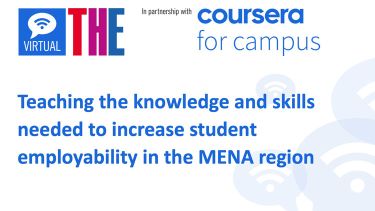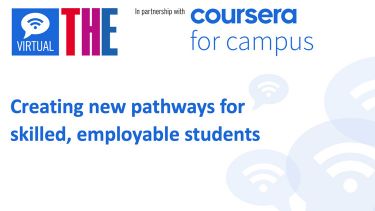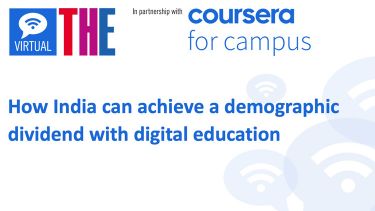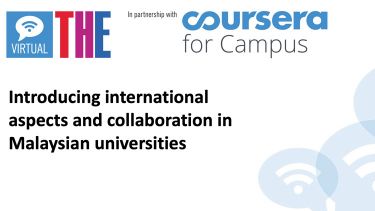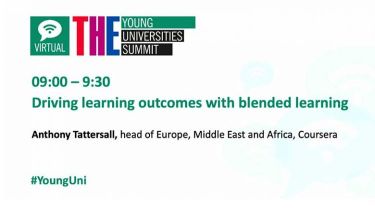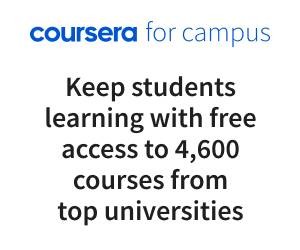The digital transformation of the workplace is placing a shelf life on graduate skills, but innovative curricula, online learning and lifelong learning provision can help bridge skills gaps
The growing pressure to incorporate more skills-based learning into curricula presents higher education with a conundrum. Transformed by digital services, the fast-evolving workplace asks more of graduates, and yet the skills it demands have a shelf life. Microsoft forecasts that 149 million jobs will be created by 2025, suggesting that the technological disruption is not all bad news for graduates, but with the majority of such roles in digital sectors, all disciplines have to design innovative curricula to produce employable graduates.
At the THE Unbounded Universities event, hosted by Times Higher Education in partnership with Coursera for Campus, the company’s regional director for APAC and Japan, Eklavya Bhave, acknowledged that skills training was working hard to keep pace with technology-driven change. Bhave cited the World Economic Forum’s report on the top five job categories with increasing demand. These are data analysts and scientists, AI and machine learning specialists, big data specialists, digital marketing and strategy specialists, and process automation specialists.
Bhave noted that four or five years ago when engineering graduates started their degree programmes, the top two jobs did not exist in any meaningful way. Using insights gleaned from the behaviour of its 82 million users, Coursera discovered that today’s engineering students lacked the skills required of them in the workplace.
“Out of all the skills, software engineering, data management and statistical programming stood out the most because in a normal engineering role – if I am a mechanical engineer – software engineering or data management is not something that would be taught, but in the working world these skills are required,” Bhave said.
By partnering with Coursera, universities can supplement their curricula. Building closer relationships with industry can also inform their teaching, such as by offering work-based training via internships. But often change begins on campus. “We need to educate the students in the sense that they should know these skills are important,” said Aung Win Tun, deputy dean of the faculty of graduate studies at Mahidol University. “We introduced new terms like ‘future-ready skills’ and before that we talked a lot about soft skills. In 2016, we started a soft skills programme and invited students to join, but after two years we said, if you want to graduate, you have to complete soft skills, because we know that it is important.”
Eden Woon, president of the Asian Institute of Technology, preferred the term “digital literacy” but he, too, advocated for its promotion on campus – particularly for undergraduates – and making this a core requirement. He cautioned that developing work-relevant skills in the curriculum needed to be combined with the provision of lifelong learning. “These should be upgraded through Coursera, through the continuing education arms of universities,” he said. “We have a big continuing education arm. Bring in people who have been working for 10, 15 years and upgrade them, because things are changing so fast.”
Watch the session on demand above or on the THE Connect YouTube channel.
Find out more about Coursera for Campus.
















